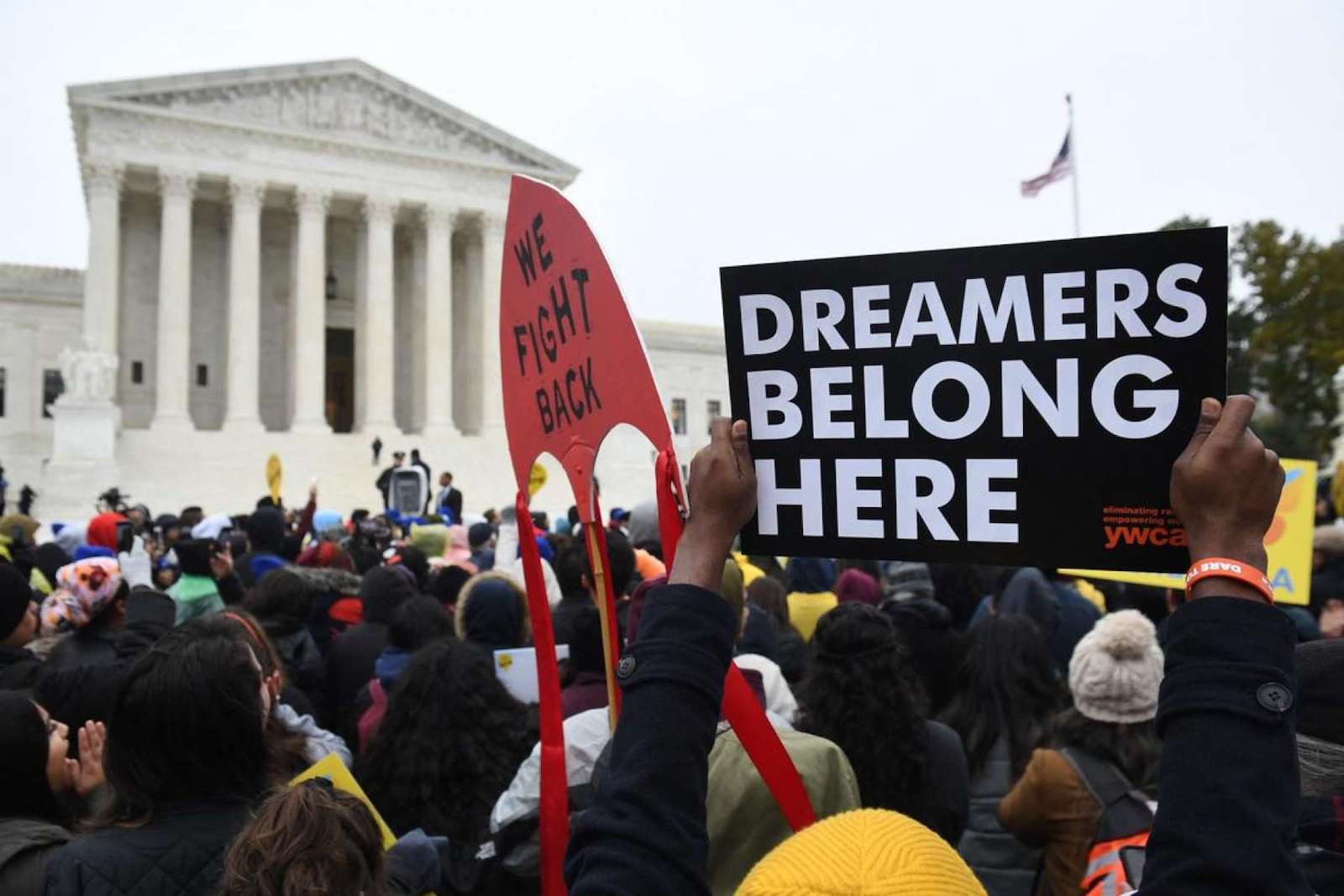
The latest DACA ruling is exactly why a pathway to citizenship must be included in reconciliation
Senators must be pushed harder in giving DACA a concrete platform.
Congress has included some citizenship provisions in its yet-to-be released reconciliation package. But while deliberations continue among legislators, DACA has once again been put in peril.
Senate Democrats reached a $3.5 trillion budget deal for the package, and according to intentionally vague statements by some, it includes immigration provisions for an unspecified number of immigrants.
While unclear, the statements led several immigration organizations and advocates to announce that the committee has included a pathway to citizenship for a number of undocumented immigrants.
It prompted supporters of these provisions to pressure their Senators to push for a pathway to citizenship to be applied for Deferred Action for Childhood Arrivals (DACA) recipients, TPS holders, essential workers during the pandemic, and more.
The consensus was clear: That the inclusion of a pathway to citizenship for some statuses was the first big step in implementing comprehensive immigration reform.
But in the days since the immigration provisions were announced, DACA has come into legal question once more.
On July 16, U.S. District Judge Andrew S. Hanen of the Southern District of Texas ruled the DACA program to be unlawful, citing that it exceeds the power that Congress delegated to the executive branch.
Judge Hanen’s ruling does not immediately affect current DACA recipients but does bar the approval of new applicants to the already burdened system.
Thousands of DACA recipients have been waiting for months for their statuses to be renewed while the USCIS has struggled to cope with the pile of requests during already-present pandemic stressors
US News reported 13,000 DACA renewal requests had been pending for more than 120 days, even though the USCIS recommends individuals submit their applications 120 to 150 days before their status expires.
For first-time applicants, the situation has turned from arduous to altogether impossible after the ruling. USCIS reported it received more than 62,000 first-time DACA requests during the first five months of 2021 alone.
In his ruling, Hanen does say the government will have an opportunity to put DACA on a more concrete platform through a new regulation that is currently in its drafting stage.
But for now, USCIS says it will provide additional specific operational guidance in the coming days.
RELATED CONTENT
“DACA recipients are students, military service members, essential workers, and part of our communities in every way, shape, and form. USCIS will comply with the court order, continue to implement the components of DACA that remain in place, and work on publishing a Notice of Proposed Rulemaking designed to strengthen and fortify DACA,” USCIS wrote in a statement.
All individuals whose DACA requests were granted prior to this decision will continue to have & be eligible to renew DACA, & to request & receive advance parole, consistent with the court’s order. USCIS will provide additional specific operational guidance in the coming days.
— USCIS (@USCIS) July 19, 2021
This means the fate of more than 80,000 (as of June) first-time applicants who have yet to be approved for the program rests with Congress.
The decision is also affecting ongoing applications too.
Just days after Hanen’s ruling, DACA recipients have canceled their biometrics appointments in fear of repercussions.
The fact that this is all happening amid talks of including a pathway to citizenship for some undocumented individuals underscores the importance of reconciliation talks.
DACA does not grant legal status. Only Congress can do so under the Immigration and Nationality Act (INA).
President Joe Biden himself said he was disappointed with Hanen’s decision against DACA, adding that the Department of Justice would appeal the decision and the Department of Homeland Security also planned to issue a proposed rule about the program.
Important update! https://t.co/BB47Hy9Edi
— RAICES (@RAICESTEXAS) July 18, 2021
A more immediate solution could be reached through the Democrats’ pending reconciliation package.
Of course, it is all without mentioning that the Senate parliamentarian, Elizabeth MacDonough, may rule that immigration changes cannot be passed through budget reconciliation. It’s the fate that met the Democrats’ effort to raise the minimum wage through reconciliation earlier this year.
That's why Senators must be pushed harder in giving DACA a concrete platform.











LEAVE A COMMENT:
Join the discussion! Leave a comment.